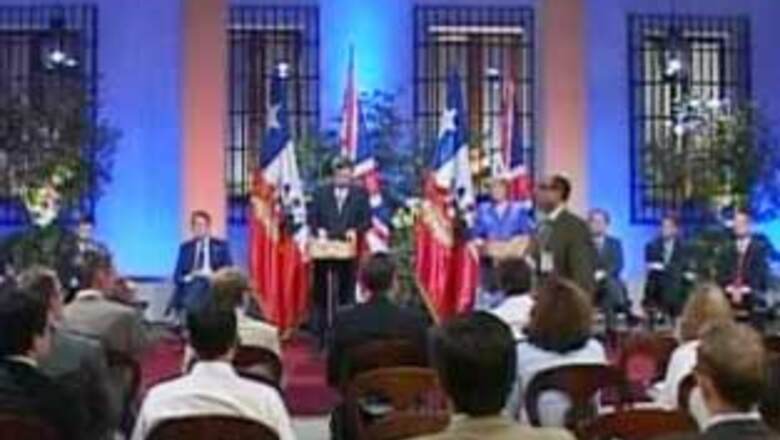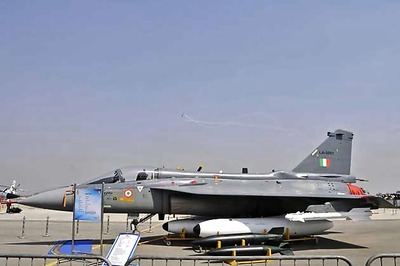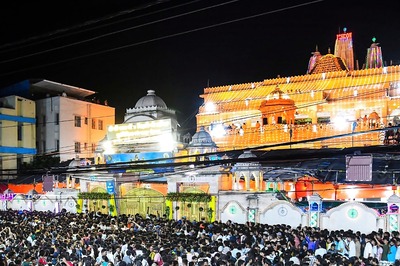
views
London: Buoyed by a renewed sense that the recession has made anti-capitalist protest fashionable again, a myriad of groups have vowed to bring London to a standstill during next week's Group of 20 (G20) summit to rescue the global economy.
The website announcements by umbrella organisation G-20 Meltdown that large swaths of London would be in security lockdown and bankers would be targeted if they dared to wear smart suits on the day have led Scotland Yard to declare that police are facing a "huge challenge".
The protesters' target date is April 1, renamed Financial Fools' Day for the purpose, when suited effigies of bankers will be symbolically hanged and demonstrators will march on the Bank of England headquarters shouting: "Burn a banker!"
"They want to stop the City on Wednesday, that is their avowed intention," said Scotland Yard commander Bob Broadhurst. The force will have up to 10,000 men on the streets in a massive security operation estimated to cost in excess of seven million pounds ($10.2 million).
Their task is not made any easier by the fact that the G20 meeting coincides with a state visit by Mexican President Felipe Calderon - a summit participant - and with England's national football squad matches against Ukraine and Slovakia.
Broadhurst said the re-emergence of radical direct action groups that had not been active since the 1990s and had forged "new alliances" with environmentalists, anti-globalisation protesters and anarchists made the challenge unpredictable.
"Clearly there are some very innovative and clever people and they know our tactics," he said. "Anarchists by definition don't come to see us."
There have been reports that groups supporting "direct action" are planning to block streets and paralyse public transport by intentionally leaving unattended bags on Tube trains.
There were also plans to block a road tunnel en route to the summit venue in the ExCel exhibition centre in the former docklands in east London.
Demonstrators are expected to switch their attention to the purpose-built waterfront centre early April 2 as delegations and some 2,000 media representatives arrive for the one-day summit.
According to Broadhurst, the police will "facilitate lawful protest". There would be a "demonstration pen" near the ExCel centre to "accommodate a few hundred protestors".
Meanwhile, staff in the City, London's financial district, have been advised to dress down and postpone non-essential meetings during the summit week.
"Businesses might want to consider asking their staff not to dress in a suit and tie as a lot of the protestors say they're going to target bankers," said a spokesman for the London Chamber of Commerce.
He advised that workers should stagger their start and finish times and consider postponing meetings.
Businesses were braced for losses of millions of pounds as a result of the expected disruptions and staff being unable to get to their place of work.
"The revolution is coming. This is our time," protest group Government of the Dead said on its website, confirming the view held by anti-capitalism groups that the recession and spiralling unemployment would make ordinary citizens join their cause.
"There will be a lot of people for whom this is the first opportunity to express their anger and look for another way of doing things," singer and political activist Billy Bragg told the Observer newspaper.
Comparing the protests with the demonstrations against Third World debt at the end of the 1990s, he said: "The anti-globalisation movement last time was doing it in the teeth of a boom. Now capitalism has floundered and people want an alternative to what we have had."
While G20-Meltdown insists that its intentions are peaceful, the authorities fear that radical groups are preparing for more disruptive tactics, including entering banks and office buildings.
George McKay, professor of Cultural Studies at Salford University in Manchester, backed the belief that the economic crisis had served to boost support for street protest.
"We are at an absolutely pivotal point. That, I think, will add to a new level of angry energy," he said.


















Comments
0 comment